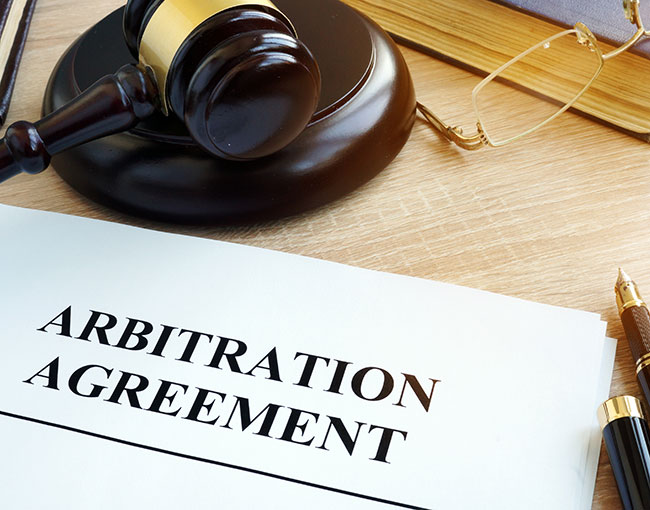CHICAGO, IL – Have you ever wondered what you’re agreeing to when you sign an arbitration agreement? An arbitration agreement is a written contract in which two or more parties agree to utilize a neutral third-party, the arbitrator, to resolve a dispute instead of pursing any legal claims against the other party through a lawsuit.
Arbitration overview
Rather than having your case heard before a judge in the court of law, your dispute is heard by an arbitrator during an arbitration hearing. The procedures involved are less rigorous than standard court procedures and is much more informal than a court hearing with most arbitration hearings being held in a conference room.
Arbitrators are often retired attorneys or judges; however, those in a more specialized industry can be trained in arbitration procedures.
The disadvantages of arbitration agreement
Arbitration leaves matters solely in the hands of the arbitrator versus a jury. The arbitrator acts as the judge and the jury, in this case. For most individuals, having a jury of peers is an important right when seeking restitution of a claim. If you can’t choose an arbitrator, there can be conflicts of interest between parties.
Arbitration also limits the amount of information each side is required to provide the other party. In employment cases, for example, this hurts the employee because the employer is normally the one in possession of most of the documentation relating to the employee’s case. Additionally, if a company insists on arbitration, you may have to pay for the process.
Most importantly, arbitration decisions typically cannot be appealed. If the arbitration is mandatory and binding, both parties waive their rights to the court system and have a judge or jury decide their case.
Contacting an attorney
There are plenty of good reasons you should not sign an arbitration agreement. While many people haven’t filed a lawsuit, you have the right to do so. Contact one of our skilled attorneys at the Dinizulu Law Group to review a contract or a stand-alone arbitration agreement. For a free case evaluation, contact us today at (312) 384-1920.



